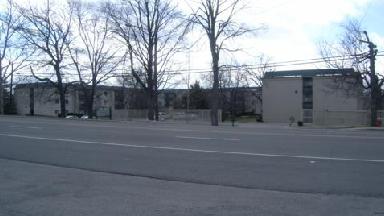Voting Out…and In
St. Stephen’s Church in Virginia voted to leave the diocese it was in to join another one. This congregation is one of several considering the move, but, so far, just the third to make the move.
Question: where in the Bible does it teach that a congregation can vote for such a thing? In fact, where does the Bible teach anything but autonomy of each congregation under the leadership of elders?
Answer: Nowhere.
Personally, I believe that, until people begin to come back to the Bible way of doing things, we will see more of this. Maybe there is a great chance of “restoration” evangelism as stories like these continue to pile up. Maybe there are some out there who are tired of all these changes and would welcome doing things simply by the Bible.
The following is the article about this decision, as written by Frank DeLano in the Fredricksburg (VA) Free Lance Star.
The congregation of a small Northern Neck church has voted to sever its 125-year-old ties with the Episcopal Church to join a new Anglican organization under the umbrella of an African archbishop.
St. Stephen’s Church at Heathsville joins two large Northern Virginia churches and about 11 other parishes that have left, or are considering leaving, the Virginia Episcopal diocese over differences in church doctrine.
Yesterday’s announcements of church votes were a culmination of conservative outrage at the national church’s ordination of an openly gay bishop in 2003, and its refusal to disapprove same-sex marriages.
“Just as disturbing was the church’s failure to recognize the sovereignty of Holy Scripture –all of it, at all times and not just when it’s convenient,” said Tony Blackstone of St. Stephen’s.
Members of St. Stephen’s staked their own claim to church property. The Episcopal Diocese of Virginia also claims the property.
St. Stephen’s members voted yesterday and last Sunday. During the week, the pine ballot box was locked in the evidence room of the Northumberland County commonwealth’s attorney.
Last Sunday 115 members voted. Seventeen more voted yesterday. In all, more than 70 percent of the 132 voters approved St. Stephen’s departure from the mainstream church.
“The church will now be called St. Stephen’s Church (Anglican). It is anticipated that any residual disputes with the diocese will be resolved through negotiated settlements,” said Ward LeHardy, a St. Stephen’s vestryman.
But members of St. Stephen’s who voted against leaving said yesterday that they intend to ask the Virginia diocese to supply them with a new pastor so that they can continue to worship as Episcopalians in the wooden chapel built in 1881.
“A significant number of people voted to remain loyal Episcopalians. We’re going to stay members of St. Stephen’s Episcopal Church, not St. Stephen’s (Anglican),” said Dawn Mahaffey.
The vote was overwhelming. Ninety-nine members voted for and 33 voted against–leaving the Episcopal Church and joining the Convocation of Anglicans in North America.
Truro Church in Fairfax County and The Falls Church in Falls Church announced yesterday that 90 percent of their combined 4,000 members voted last week to join CANA.
CANA was established by Anglican Archbishop Peter Akinola of Nigeria, who has called the growing acceptance of gay relationships a “satanic attack” on the church. Earlier this year, Akinola’s Church of Nigeria consecrated Truro rector Martyn Minns bishop of CANA.
“This has been our spiritual home, so separating is very hard,” Minns said at a news conference yesterday announcing the parishes’ decision. “There’s also the promise of a new day. A burden is being lifted. There are new possibilities breaking through.”
Virginia Bishop Peter Lee called the announcements of the votes “a sad day for the church.”
He said the secessionist churches “have created Nigerian congregations occupying Episcopal churches. We fully intend to assert the church’s canonical and legal rights over these properties.”
The Episcopal Church, the U.S. wing of the global Anglican Communion, has been under pressure from traditionalists at home and abroad since the 2003 consecration of gay Bishop V. Gene Robinson of New Hampshire.
Nationally, Episcopal researchers estimate that conflicts over Robinson caused the departure of at least one-third of the nearly 115,000 people who left the from 2003 to 2005.
Under Anglican tradition, Akinola’s move into Episcopal territory amounts to an invasion, since archbishops agree not to start churches outside the borders of their own region.
Episcopal Presiding Bishop Katharine Jefferts Schori will consult with her advisers on how the denomination should respond, said Bob Williams, the national Episcopal spokesman.
Seven of the 100 U.S. Episcopal dioceses have threatened to break from the denomination, but have so far stayed put.
The closest any have come to leaving was a vote earlier this month in the Diocese of San Joaquin, in Fresno, Calif., endorsing a first step toward seceding. But that diocese must take a second vote next year before they can formalize a split.
The feud has been far more damaging to the 77 million member Anglican Communion. Most overseas Anglicans believe gay relationships violate Scripture and contend liberal interpretations of the Bible are far outside the bounds of mainstream Christian belief.
Struggling to hold the communion together, Archbishop of Canterbury Rowan Williams, the Anglican spiritual leader, has said that the communion may have to create a two-tier system of membership, with branches that ordain partnered gays given a lesser status.
St. Stephen’s member Brooke Read, who described himself as a “cradle Episcopalian,” said, “I feel with a heavy heart that we must go our separate ways.
I’m just thankful my sainted mother is not here to see it.”


